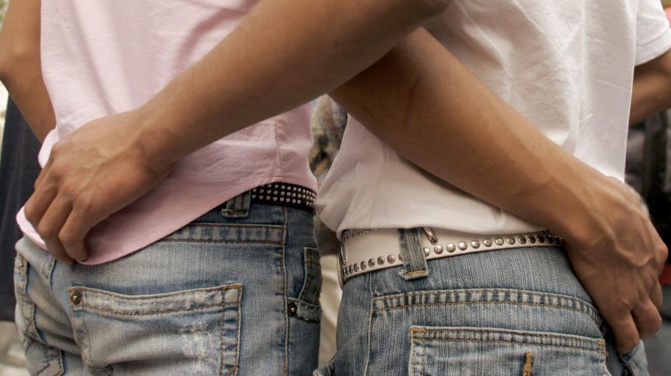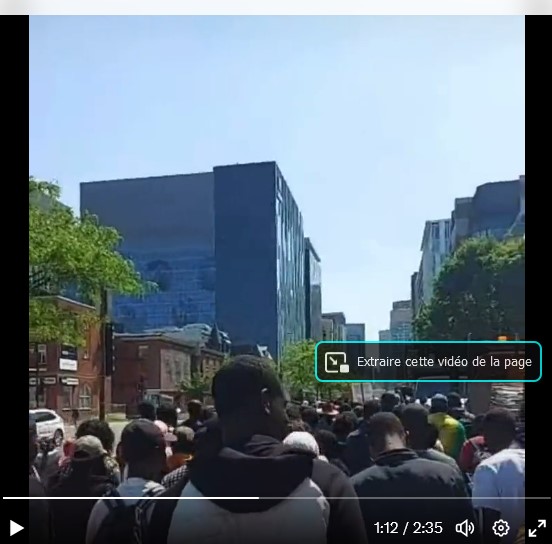SENETOILE BLOGS
Fast backlinks and Guest-post hosting
Why are Kenya and Uganda cracking down on LGBTQ rights?

A new law passed in Uganda appears to be the first to outlaw merely identifying as LGBTQ, a rights group says.
Kenya and Uganda are moving to further curtail the rights of lesbian, gay, bisexual, transgender and queer (LGBTQ) people, whose relationships are already deemed illegal in the conservative East African nations.
After a session lasting nearly seven hours, Ugandan lawmakers approved the Anti-Homosexuality Act on Tuesday, ordering harsh penalties for anyone who engages in same-sex activity.
While more than 30 African countries including Uganda already ban same-sex relationships, the new law passed appears to be the first to outlaw merely identifying as LGBTQ, Human Rights Watch said.
In Kenya, a February ruling by the Supreme Court upheld verdicts by lower courts stating that the government could not lawfully refuse to register an organisation calling itself the National Gay and Lesbian Human Rights Commission (NGLHRC).
But President William Ruto and many religious leaders and political pundits have been condemning the court’s conclusion that the constitution barred discrimination on the basis of sexual orientation.
“I am a God-fearing man and whatever happened at the court, even if we respect the court, our culture, values, Christianity and Islam cannot allow women to marry each other, or men to marry fellow men,” local media outlet Citizen TV reports Ruto as saying.
Supporters in both nations say the lifestyle of the LGBTQ community threatens traditional values.
Here is what you should know about the latest developments:
What are the latest measures?
If assented to by Ugandan President Yoweri Museveni, the bill will hand authorities broad powers to target gay Ugandans who already face legal discrimination and mob violence.
It bans promoting and abetting homosexuality as well as conspiracy to engage in homosexuality, in addition to same-sex intercourse.
Violations under the law draw severe penalties, including death for so-called aggravated homosexuality and life in prison for gay sex.
Aggravated homosexuality involves gay sex with people under the age of 18 or when the perpetrator is HIV positive, among other categories, according to the law.
Same-sex relations are legal in only 22 of Africa’s 54 countries, and are punishable by death or lengthy prison terms in some, according to a global review by the International Lesbian, Gay, Bisexual, Trans and Intersex Association (ILGA).
Africa accounts for nearly half of the countries worldwide where homosexuality is outlawed, according to the review.
In Kenya, a Supreme Court ruling that the constitution barred discrimination on the basis of sexual orientation sparked fears among some citizens who oppose the legalisation of same-sex relationships.
The registration of the commission was one of two cases concerning LGBTQ rights that have been under litigation.
Analysts say the reaction to the February ruling may be an effort to influence the second case, which directly challenges the constitutionality of the sections of the penal code banning sex “against the order of nature”.
Why is this happening?
Uganda is notorious for strict views on sexuality and intolerance towards homosexuality, which is criminalised under colonial-era laws.
But opposition politicians boycotted a speech by Museveni on Thursday, in which he described gay people as “deviations”, to protest against human rights violations and the illegal imprisonment and forced disappearance of their supporters.
In his speech, Museveni said: “Western countries should stop wasting the time of humanity by trying to impose their practices on other people.”
Under his rule, journalists have been attacked, lawyers jailed, election monitors prosecuted, the internet shut down and opposition leaders muzzled.
The increasing visibility and assertiveness of sexual minorities have also been attributed to the West.
Meanwhile, conspiracy theories accusing shadowy international forces of promoting homosexuality are gaining traction on social media.
In Kenya, Archbishop Jackson Ole Sapit of the Anglican Church speculated that the alleged spread of homosexuality was a sinister ploy by environmentalists to depopulate the globe in an effort to address climate change.
Meanwhile, during a parliamentary session, MP Joshua Kimilu condemned the court decision as violating the law and warned that Kenyan culture can “be ruined by the West”.
What was the international reaction?
The United Nations and the United States on Wednesday called for Museveni to reject what they said was an “appalling” anti-gay bill.
UN High Commissioner for Human Rights Volker Turk urged Museveni not to promulgate the bill into law.
“The passing of this discriminatory bill – probably among the worst of its kind in the world – is a deeply troubling development,” he said in a statement.
“If signed into law by the president, it will render lesbian, gay and bisexual people in Uganda criminals simply for existing, for being who they are. It could provide carte blanche for the systematic violation of nearly all of their human rights and serve to incite people against each other.”
US Secretary of State Antony Blinken said the legislation would “undermine fundamental human rights of all Ugandans and could reverse gains in the fight against HIV/AIDS” and urged Uganda to reconsider the implementation of the bill.
The United Kingdom’s special envoy on LGBTQ rights, Nicholas Herbert, said that “while many countries, including a number on the African continent, are moving towards decriminalisation this is a deeply troubling step in the opposite direction”.
Amnesty International also appealed to Museveni to reject the “appalling” legislation, describing it as a “grave assault” on LGBTQ people.
“This ambiguous, vaguely worded law even criminalises those who ‘promote’ homosexuality,” said Amnesty’s east and southern Africa director, Tigere Chagutah.
What’s next?
Critics say the latest developments are likely telltale signs of a continuing witch hunt.
In recent weeks, Ugandan authorities have cracked down on LGBTQ people after religious leaders and politicians alleged students were being recruited into homosexuality in schools.
This month, Ugandan authorities arrested a secondary school teacher in the eastern district of Jinja over accusations of “grooming of young girls into unnatural sex practices”. She was subsequently charged with gross indecency and is in prison awaiting trial.
On Friday, a day after Museveni’s speech, Ugandan police said they had arrested six men for “practising homosexuality”.
The police said on Monday they had arrested six people accused of running a network that was “actively involved in the grooming of young boys into acts of sodomy”.
Kenya’s Ministry of Education announced that it would be deploying chaplains to schools to prevent “infiltration” by LGBTQ people.
source see : https://www.aljazeera.com/news/2023/3/23/why-are-kenya-and-uganda-cracking-down-on-lgbtq-rights







